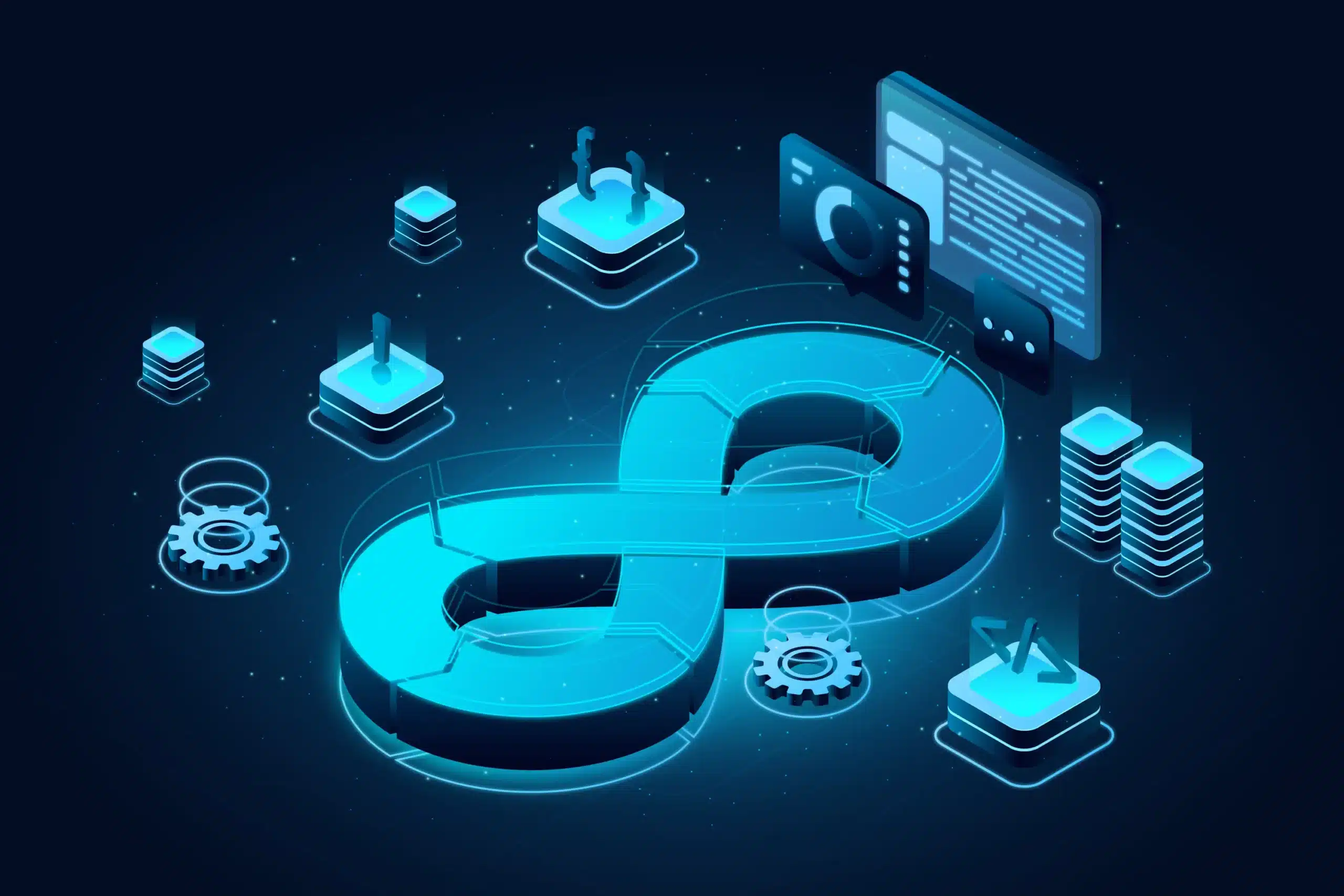In the age of cloud-native applications, DevOps has become the cornerstone of agile software delivery. Yet, managing the complexity of modern infrastructure still consumes valuable engineering time. That’s where AI in DevOps automation emerges—not as a buzzword, but as a strategic lever to scale faster, reduce toil, and unlock intelligent decision-making across the delivery pipeline.
The Growing Need for Intelligent Automation in DevOps
The traditional DevOps toolchain, while effective, often relies on manual configurations, static thresholds, and reactive responses. As systems scale and interdependencies grow, this manual overhead introduces friction. According to Gartner, by 2026, 60% of DevOps teams will adopt AI-powered tools to manage infrastructure and reduce MTTR (Mean Time to Resolution) by 40%.
This growing adoption signals a clear trend: enterprises are embracing AI in DevOps automation to solve for scalability, complexity, and resilience.
What Makes AI a Game-Changer for DevOps?
AI adds a layer of intelligence to DevOps by processing vast volumes of operational data, identifying patterns, and automating decisions that were traditionally made by human engineers. Here’s how it’s transforming day-to-day operations:
-
Predictive Monitoring: AI algorithms can detect anomalies before they become outages, based on historical trends and real-time telemetry.
-
Automated Incident Response: Instead of waiting for manual triage, AI-powered bots initiate pre-configured runbooks when critical alerts fire.
-
Smarter CI/CD Pipelines: Machine learning enhances test prioritization, resource allocation, and deployment timing by learning from past release patterns.
-
Infrastructure Optimization: AI tools continuously evaluate cloud consumption patterns and recommend rightsizing or scaling policies.
These applications result in more stable systems, faster response times, and significantly reduced human toil.
Enterprise Benefits of AI in DevOps Automation
The value of intelligent automation extends beyond operational efficiency. It aligns engineering efforts with business outcomes, offering measurable ROI:
-
Faster Time to Market: Automated pipelines reduce deployment cycles, allowing faster releases with fewer errors.
-
Reduced Operational Costs: Proactive incident management and optimized resource usage lower infrastructure spend and downtime-related losses.
-
Improved Developer Experience: By reducing repetitive tasks, developers can focus on innovation instead of firefighting.
A McKinsey study found that enterprises using AI-driven DevOps workflows reported a 20–30% improvement in developer productivity and a 40% faster mean release frequency.
Challenges to Overcome
Despite its promise, implementing AI in DevOps automation isn’t plug-and-play. Companies must consider:
-
Data Quality: AI models are only as effective as the data fed into them. Noisy, inconsistent logs reduce model accuracy.
-
Cultural Resistance: Shifting from manual control to machine-led decision-making requires change management and buy-in across teams.
-
Tooling Fragmentation: Integrating AI across disparate tools (monitoring, CI/CD, ticketing) can be complex without a unified platform.
Enterprises must start small, validate impact, and expand incrementally to avoid disruption.
Getting Started with AI in DevOps Automation
To effectively adopt AI in your DevOps strategy, consider these steps:
-
Audit Your Toolchain: Identify where automation is lacking—monitoring, testing, or deployment.
-
Integrate AI-capable Tools: Platforms like Moogsoft, Dynatrace, and Harness offer AI-native solutions for DevOps pipelines.
-
Build a Center of Excellence (CoE): Dedicate a cross-functional team to oversee AI implementation, training, and performance tracking.
-
Track KPIs: Define success metrics such as incident resolution time, release frequency, and infrastructure cost savings.
By starting with high-impact areas, organizations can gain early wins and build confidence in AI’s value.
Conclusion: Automation Is Evolving—Are You?
The future of DevOps is not just about speed, it’s about intelligence. AI in DevOps automation empowers engineering teams to deliver with precision, scalability, and confidence. As infrastructure becomes more dynamic and demand for uptime increases, intelligent automation is no longer optional—it’s imperative.
UpTech Solution helps enterprises embrace next-gen DevOps strategies, offering expert engineers and on-demand cloud professionals who are fluent in both automation and AI-powered operations.
Need help modernizing your DevOps pipeline with AI? Our certified experts are ready to accelerate your transformation.
